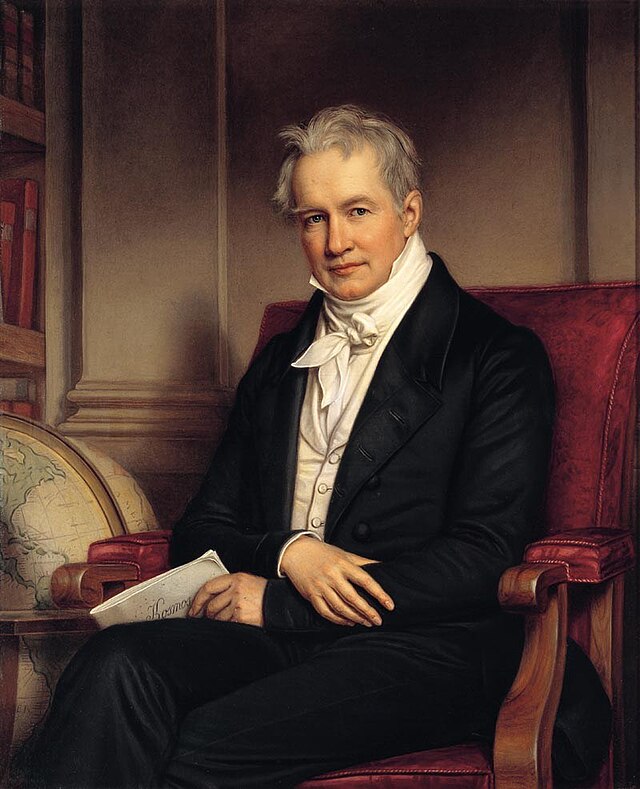Alexander von Humboldt: The Visionary Naturalist and Explorer
Alexander von Humboldt (1769-1859) was a towering figure in the natural sciences, whose explorations and scientific contributions laid the groundwork for modern environmental science, biogeography, and ecology. Born on September 14, 1769, in Berlin, Prussia (now Germany), Humboldt grew up in an aristocratic family with a keen interest in the natural world, nurtured by his early education in botany, geology, and geography.
Humboldt’s academic pursuits began at the University of Frankfurt and continued at the Mining Academy in Freiberg, where he studied under the tutelage of renowned geologist Abraham Gottlob Werner. His early career as a mining inspector gave him practical experience in geology and mineralogy. However, it was his passion for exploration and natural history that drove him to embark on a series of groundbreaking expeditions.
In 1799, Humboldt began his most famous journey, traveling to the Americas with French botanist Aimé Bonpland. Over five years, they explored regions that include modern-day Venezuela, Colombia, Ecuador, Peru, Mexico, and Cuba. Humboldt meticulously documented the flora, fauna, geology, and climate of these regions, often at great personal risk. His ascent of Mount Chimborazo in Ecuador, though not reaching the summit, set a world altitude record at the time and provided valuable data on altitude sickness and atmospheric pressure.
Humboldt’s observations during this expedition led to numerous scientific breakthroughs. He was among the first to recognize the interconnectedness of climate, vegetation, and geography, laying the foundation for the field of biogeography. His concept of “isotherms” (lines connecting points of equal temperature) revolutionized the understanding of climate patterns and their impact on ecosystems.
Upon his return to Europe, Humboldt published Voyage aux Régions Équinoxiales du Nouveau Continent (1807-1834), a multi-volume account of his American travels that combined scientific observations with vivid descriptions of landscapes and cultures. His work emphasized the unity of nature and the interdependence of its components, a perspective that influenced future scientific thinking and inspired figures like Charles Darwin.
In addition to his contributions to natural science, Humboldt was a fervent advocate for environmental preservation and the ethical treatment of indigenous peoples. He criticized the exploitative practices of colonialism and slavery, arguing for a more humane and sustainable approach to natural resource management.
Humboldt’s influence extended beyond his publications. His Kosmos series, published between 1845 and 1862, aimed to unify various scientific disciplines into a coherent understanding of the natural world. This ambitious work synthesized knowledge from astronomy, geography, and natural history, presenting a holistic view of the universe that was ahead of its time.
Humboldt’s legacy is reflected in the numerous species, places, and phenomena named in his honor, including the Humboldt Current and the Humboldt Penguin. His integrative approach to studying nature paved the way for modern environmental science and ecology, emphasizing the complexity and interconnectedness of natural systems.
Alexander von Humboldt died on May 6, 1859, in Berlin, but his visionary contributions continue to resonate. His interdisciplinary approach and passion for exploring the natural world inspired generations of scientists and environmentalists, cementing his status as one of history’s most influential naturalists.
#AlexanderVonHumboldt #NaturalHistory #Exploration #Biogeography #EnvironmentalScience #Ecology #ScientificDiscovery #HumboldtPenguin #Kosmos #ClimateScience
